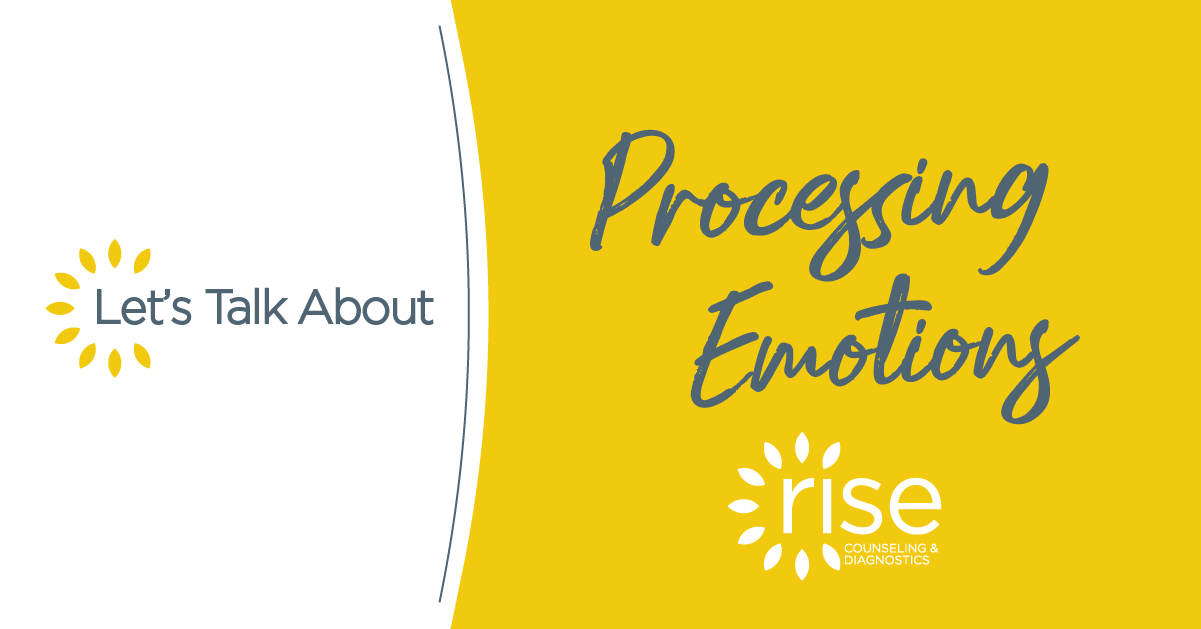Learning to process and work through big emotions is a major focus of therapy. At Rise, we see and treat each client as an individual. Just as everyone feels emotions differently, the process of how they learn to cope with the emotions must also be different.
Therapists use a wide variety of therapeutic modalities and interventions. Some of those techniques include Role-Play/Behavioral Rehearsal, talk therapy, play-based techniques, Cognitive Challenging, Cognitive Refocusing, Cognitive refraining, Relaxation/Deep Breathing, Exploration of Coping Patterns, Exploration of Emotions, Structured Problem Solving, Supportive Reflection, and guided imagery.
We have 8 basic emotions we express with countless variations of each:
- Joy
- Sadness
- Fear
- Disgust
- Surprise
- Anticipation
- Anger
- Trust
Why is it important to learn how to process our emotions?
- We learn resilience & obtain a better quality of life
- We learn how to process uncomfortable or painful feelings
- Emotions can motivate how we act
- Emotions can help us avoid danger
- Emotions can help us make decisions
- Emotions help us understand others better
How do we process our emotions?
- Draw how you feel
- See a mental health counselor
- Make a gratitude list
- Talk to a friend or someone you trust
- Scream
- Allow yourself to cry
- Rip paper into small pieces
If you or someone you know is interested in assistance with emotional processing, don’t hesitate to reach out. We would love to start the conversation with you here at Rise Counseling & Diagnostics if you are interested in therapy. Get Started today at 501-891-5492.
References for this article include 6seconds.org, verywellmind.com, mhanational.org, and emotionalprocessingtherapy.com.


